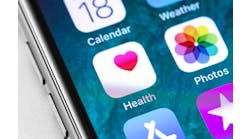Two different people posed the following question to me:
“What’s your next story on?”
Both got a response that was something like this:
“It’s going to look at the self-service kiosks that some hospitals are installing. What happens is, instead of waiting to get called up to the counter then filling out information on a clipboard, you can go up to this kiosk and check in. You can verify information, make a payment and even schedule future appointments.”
The first person replied by saying:
“Oh I see, like the ones you use for flight check-in. Those are great. They've saved me a lot of time at airports — I wish my doctor had one.”
The second person replied by saying:
“Wow, really? So you don’t speak to anyone at the desk when you check in? That seems kind of impersonal. I’d rather talk to a person.”
Can you guess which response came from my Dad, who is in his 60s, and which came from my 26-year-old fiancé, Dan?
If you guessed that my Dad loves the idea while Dan isn’t sold on it, you’re right! My Dad likes the fact that kiosks can save him time by allowing him to enter his own information and make payments. Dan, on the other hand, figures that he relies on computers enough — for withdrawing money, checking out at the grocery store, buying bus tickets — if he’s in a hospital, he wants a human being helping him with the details.
If two people can have such differing opinions on kiosks, I can only imagine what the situation must be like at a hospital board meeting. Are some hospital executives pushing for kiosks, touting the potential benefits they offer in terms of patient flow, convenience and satisfaction, while others insist that as care becomes more electronic, there are certain situations when a patient craves the human element?
Maybe this is the case, and then again, maybe this is an easy win for CIOs. In the midst of complex implementations like CPOE, maybe a self-service kiosk is viewed as a no-brainer that empowers patients and can improve the flow of care with a fraction of the headache incurred by other technology deployments. My initial reaction with patient check-in is that the positives outweigh the negatives, but that could be attributed to the fact that I’m relatively young and somewhat tech-savvy. I want to know where CIOs stand on this issue. What do you think? Please contact me with your take on this topic.
HCI Poll:As a CIO, how do you view the increasing use of self-service kiosks in hospitals?
